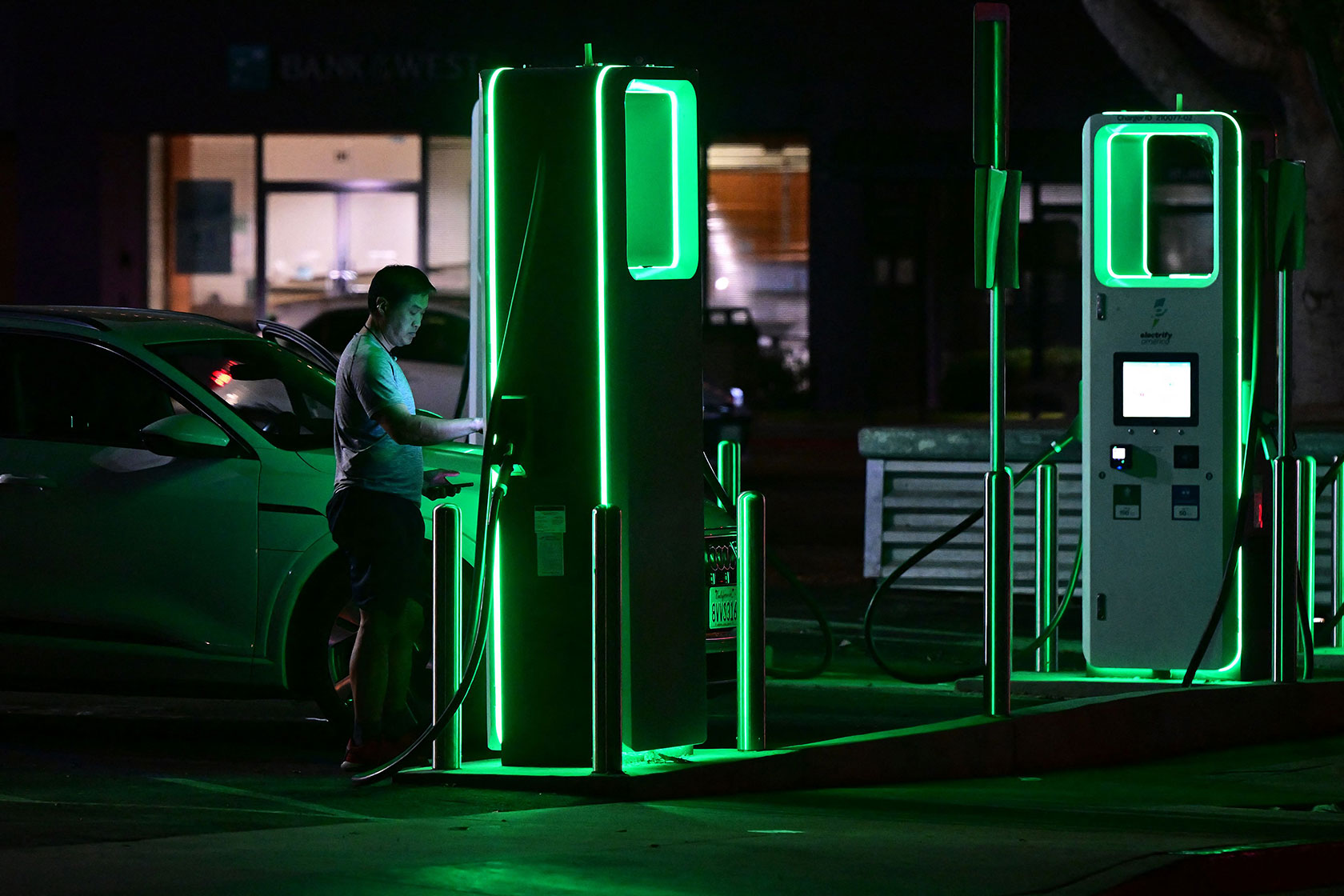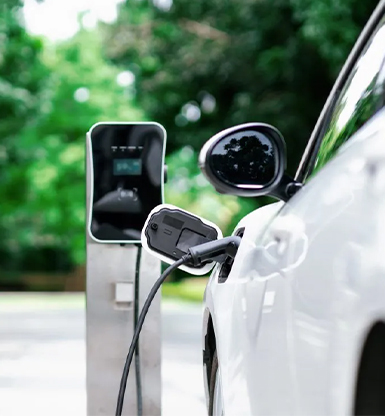The Most Recent Innovations in EV Charging Innovation: What You Need to Know
The innovations in electric lorry (EV) charging innovation are reshaping the transportation landscape, using services that promise to enhance comfort and performance for users. Developments such as ultra-fast billing abilities, wireless billing systems, and clever facilities are becoming crucial contributors to this evolution. Furthermore, the integration of sustainable methods is readied to redefine market requirements. As we discover these developments, it ends up being important to recognize exactly how they will impact not only consumer habits yet also the wider effects for energy intake and ecological sustainability. What lies in advance in this swiftly changing landscape?
Ultra-Fast Charging Solutions
The introduction of ultra-fast billing remedies notes a considerable innovation in electric lorry (EV) technology, enhancing both the benefit and effectiveness of EV use. These ingenious charging systems can deliver power degrees surpassing 150 kW, enabling drivers to charge their vehicles in a portion of the time connected with traditional billing approaches. This fast charging capacity is specifically helpful for long-distance travel, lowering array anxiousness and making EVs more useful for day-to-day customers.
Ultra-fast billing stations make use of innovative technologies, consisting of high-capacity batteries and innovative power electronics, to promote quick power transfer. They are purposefully placed along significant highways and urban facilities to guarantee ease of access. Additionally, numerous producers are establishing automobiles suitable with greater billing rates, enabling ideal efficiency at these terminals.
The prevalent adoption of ultra-fast charging infrastructure is vital for the development of the EV market, as it deals with among the primary obstacles to EV possession: charging time. As these services remain to evolve, they guarantee to change the driving experience, making electrical lorries much more attractive to a broader audience and sustaining international sustainability objectives by promoting cleaner transport choices.
Wireless Charging Innovations
Innovations in wireless billing technology are emerging as a complementary service to ultra-fast billing systems, even more improving the ease of electrical lorry (EV) ownership. This innovation enables EVs to charge without the need for physical adapters, advertising a seamless experience for individuals. Using inductive charging concepts, wireless systems transfer power with magnetic fields, enabling vehicles to charge while parked over specially created pads or embedded infrastructure.
Recent advancements in this area have focused on enhancing performance and enhancing charging distances. Leading suppliers are currently testing higher power outcomes, which can substantially reduce billing times contrasted to earlier models. Furthermore, the combination of clever sensing units and communication technologies within these systems ensures optimal power transfer, lessening losses and enhancing overall efficiency.
Moreover, the deployment of cordless charging stations in city settings holds the potential to change the landscape of EV billing. By allowing continual charging while vehicles are fixed-- such as during vehicle parking or waiting durations-- this modern technology advertises an extra versatile and practical method to power replenishment.
As cordless billing remains to evolve, it assures to end up being an integral part of the future EV environment, further supporting the wider fostering of electrical wheelchair.

Smart Charging Infrastructure
Smart charging infrastructure is transforming the way electrical vehicles (EVs) communicate with the power grid, helping with more effective power distribution and boosting user experience. This sophisticated technology allows EVs to connect with billing terminals and the grid, optimizing energy use and lessening costs. By leveraging real-time information, clever charging systems can change billing prices based on grid demand, power prices, and the details needs of the lorry.
Additionally, clever billing facilities supports vehicle-to-grid (V2G) capabilities, making it possible for EVs to return power to the grid during peak need periods. This cooperative connection not just aids in maintaining the grid yet additionally supplies monetary rewards for EV owners. Furthermore, these systems often integrate mobile applications that allow customers to locate available billing stations, screen charging progress, and schedule billing throughout off-peak hours, thus advertising a more easy to use experience.
As governments and personal entities buy the expansion of smart billing networks, the total dependability and availability of EV charging will certainly improve. This advancement is critical for supporting the enhancing adoption of electrical cars and eventually contributing to a more lasting power community.
Improved Battery Monitoring Systems
With the fast growth of electric lorry fostering, improved battery monitoring systems (BMS) have actually ended up being essential for optimizing battery performance go now and durability. A modern-day BMS plays see post an essential function in tracking, managing, and managing the various features of an electric car's battery pack. By utilizing advanced algorithms and real-time information analytics, these systems make sure that batteries run within secure specifications, expanding their life-span while making best use of effectiveness.
Secret features of enhanced BMS include state-of-charge (SOC) and state-of-health (SOH) estimates, which supply vital understandings right into battery condition. These systems can also facilitate thermal monitoring, stopping overheating and ensuring optimum operating temperature levels, which is vital for efficiency and safety and security. EV Charging news. Additionally, improved communication protocols enable far better combination with electrical car systems, permitting for seamless information exchange and improved user experiences
In addition, as electrical cars come to be much more common, robust BMS will certainly sustain the assimilation of eco-friendly energy resources and wise grid modern technologies. This versatility not just improves the cars' functional efficiency yet additionally promotes sustainability in the more comprehensive energy ecological community. As modern technology remains to advance, the efficiency of enhanced BMS will be crucial in resolving the challenges related to electric wheelchair.
Sustainable Billing Practices
The increasing fostering of electric vehicles demands a concentrate on sustainable billing methods to additionally enhance the advantages of enhanced battery management systems. Sustainable charging not only reduces the ecological effect of billing framework but additionally optimizes power intake, bring about a more efficient electrical lorry community.
One method to accomplishing lasting charging is the integration of sustainable energy sources, such as solar and wind, right into charging stations. By utilizing tidy power, the carbon footprint associated with electricity generation is substantially reduced (EV Charging news). Furthermore, smart grid modern technology plays a vital duty in balancing power image source demand and supply, enabling EVs to bill throughout off-peak hours when renewable resource production goes to its height
Furthermore, the application of vehicle-to-grid (V2G) systems allows electrical lorries to return energy to the grid, boosting energy storage space and availability. This bi-directional circulation of energy not just supports grid stability however also offers economic advantages to EV owners.

Conclusion
Recent advancements in electric vehicle charging modern technology symbolize an essential change in the market. Smart charging facilities enhances energy intake, and enhanced battery monitoring systems improve efficiency and durability.
These ingenious billing systems can provide power degrees going beyond 150 kW, making it possible for vehicle drivers to charge their lorries in a fraction of the time linked with traditional charging methods.Improvements in wireless charging modern technology are emerging as a complementary option to ultra-fast billing systems, better enhancing the comfort of electrical vehicle (EV) possession. Utilizing inductive billing concepts, cordless systems transfer power via electro-magnetic fields, enabling cars to bill while parked over particularly created pads or ingrained facilities.
By leveraging real-time information, clever charging systems can change billing rates based on grid demand, power rates, and the particular demands of the car.
Additionally, these systems usually incorporate mobile applications that enable users to situate available billing stations, display charging progression, and routine charging throughout off-peak hours, therefore promoting a more straightforward experience. EV Charging news.